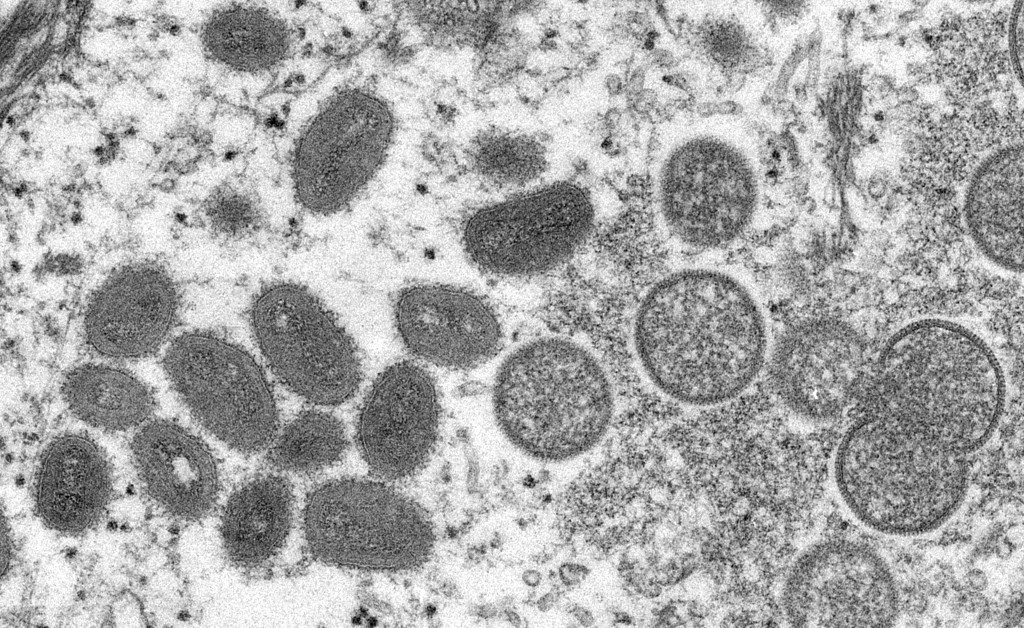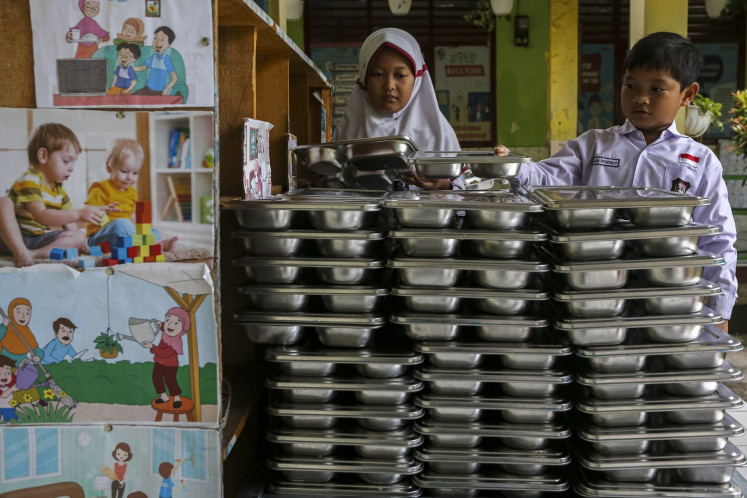RI boosts monkeypox preparedness after detecting first case
Ministry spokesperson Mohammad Syahril said the government was working to procure some 10,000 monkeypox vaccines and expand laboratory capacity for testing for the disease.
Change text size
Gift Premium Articles
to Anyone

T
he Health Ministry is stepping up efforts to manage monkeypox cases and limit the virus’ spread following the discovery of the country’s first confirmed case of the virus in Jakarta.
Ministry spokesperson Mohammad Syahril said the government was working to procure some 10,000 monkeypox vaccines and expand laboratory capacity for testing for the disease.
"The World Health Organization [WHO] is so far not recommending mass monkeypox vaccinations. But we're in the process of procuring around 10,000 vaccines to be given only to patients and their close contacts,” Syahril said in a press conference on Saturday. “Of course, the vaccines must be given the green light by the Food and Drug Monitoring Agency [BPOM] before they can be distributed to the public.”
The ministry, Syahril added, had also prepared around 1,200 reagent kits for monkeypox testing and was working to add ten more laboratories to test the disease.
A case of monkeypox is diagnosed through a polymerase chain reaction (PCR) test on a viral swab taken from one or more skin lesions or ulcers. Only two laboratories in the country can currently conduct such tests, one in Jakarta and one in Bogor, West Java.
Syahril said the government had been augmenting border control measures in response to the potential spread of monkeypox. Authorities have also urged airlines and port authorities to watch out for passengers presenting symptoms of the illness.
"We’ve also urged health workers to raise their guard against the monkeypox virus and educate themselves on protocols to follow if they find patients suspected to have the disease," he said.
First confirmed case
On Saturday, Indonesia announced its first confirmed monkeypox infection, detected in an Indonesian national who had traveled to Europe, which has confirmed cases of this illness, from late July to early August.
The patient, a 27-year-old male, began showing symptoms on Aug. 11. He visited a health facility in Jakarta on Thursday, where he was tested for monkeypox.
"He was confirmed positive for monkeypox late on Friday. We have followed up with tracing of close contacts and will check up on them," Syahril said.
He added that the patient had shown only mild symptoms, including a fever, swollen lymph nodes and a rash – and that he was currently self-isolating at home.
Syahril urged the public to remain calm as most people who were infected with the monkeypox virus recovered within a few weeks without the need for treatment.
"Practice good hygiene and a healthy lifestyle to prevent not only monkeypox but also other contagious diseases," he said.
The ministry has tested 22 other suspected cases across the country, all of which have been found negative.
A surge in monkeypox infections has been reported since early May outside the African countries to which it is endemic. Cases have involved mainly, but not exclusively, men who have sex with men. The WHO declared the situation an international public health emergency on July 23.
So far, more than 39,700 confirmed cases of monkeypox have been reported in 86 countries across the globe.
Monkeypox spreads through close, often skin-to-skin contact, including direct contact with rashes, scabs or bodily fluids from a person with monkeypox, touching surfaces that have been contaminated with the virus or contact with respiratory secretions from someone with the virus.
Although in most cases symptoms subside within a few weeks, some infections can lead to severe medical complications and even death – particularly among newborn babies, children and people with underlying immune deficiencies. As of Sunday, twelve deaths from monkeypox had been reported to the WHO.
Avoiding stigma
Public health expert Tjandra Yoga Aditama said health authorities needed to carry out six measures to anticipate a monkeypox outbreak in Indonesia.
“The government should strengthen its monkeypox surveillance, trace patients’ close contacts, use a good approach to risk communication, involve the public in disease prevention measures and roll out vaccines,” Tjandra said in a statement on Saturday.
Epidemiologist Dicky Budiman also urged the government to step up its monkeypox surveillance, especially through contact tracing.
"Trace all the people who are in contact with the first patient in the past three weeks. If possible, authorities should trace multiple layers of contacts. They should also ensure that the patient is quarantined for at least three weeks," he said.
Dicky also highlighted the importance of avoiding language that could stigmatize the gay community in communications about the virus.
Because members of the gay community were more likely than the population at large to be living with HIV/AIDS, he said, the group was, in the aggregate, at greater risk of developing severe symptoms from the monkeypox virus.
"So it's very crucial to increase surveillance among this high-risk population. And fueling the stigmatization of monkeypox will only prevent them from going to health facilities if they contract the disease.”









